I first met Jelena Aleksich in the city a couple of years ago through mutual friends. As most acquaintances like this go, I would run into her at social gatherings and we’d chat here and there. The one thing I always noticed was how she would hold eye contact and make me feel like she was one hundred percent present during any minute conversation. Through those brief conversations, I steadily learned about her work as a photographer and how her creative pursuits were gaining renown.
These periodic encounters culminated in Jelena photographing my super-spontaneous City Hall wedding on a gorgeous day last September. Through a turn of events that neither of us could have foreseen, Jelena committed to capturing my nuptials, going as far as to clear out her schedule just a week before my wedding date.
That’s the kind of person Jelena is. She’s a budding entrepreneur, creative dynamo, and confidante to many. But even with all of that on her plate, she’s unconditionally compassionate and willing to give a hand to anyone who needs it. It’s that inherent empathy that has fueled the launch and success of her experiment-turned-business, The Confetti Project.
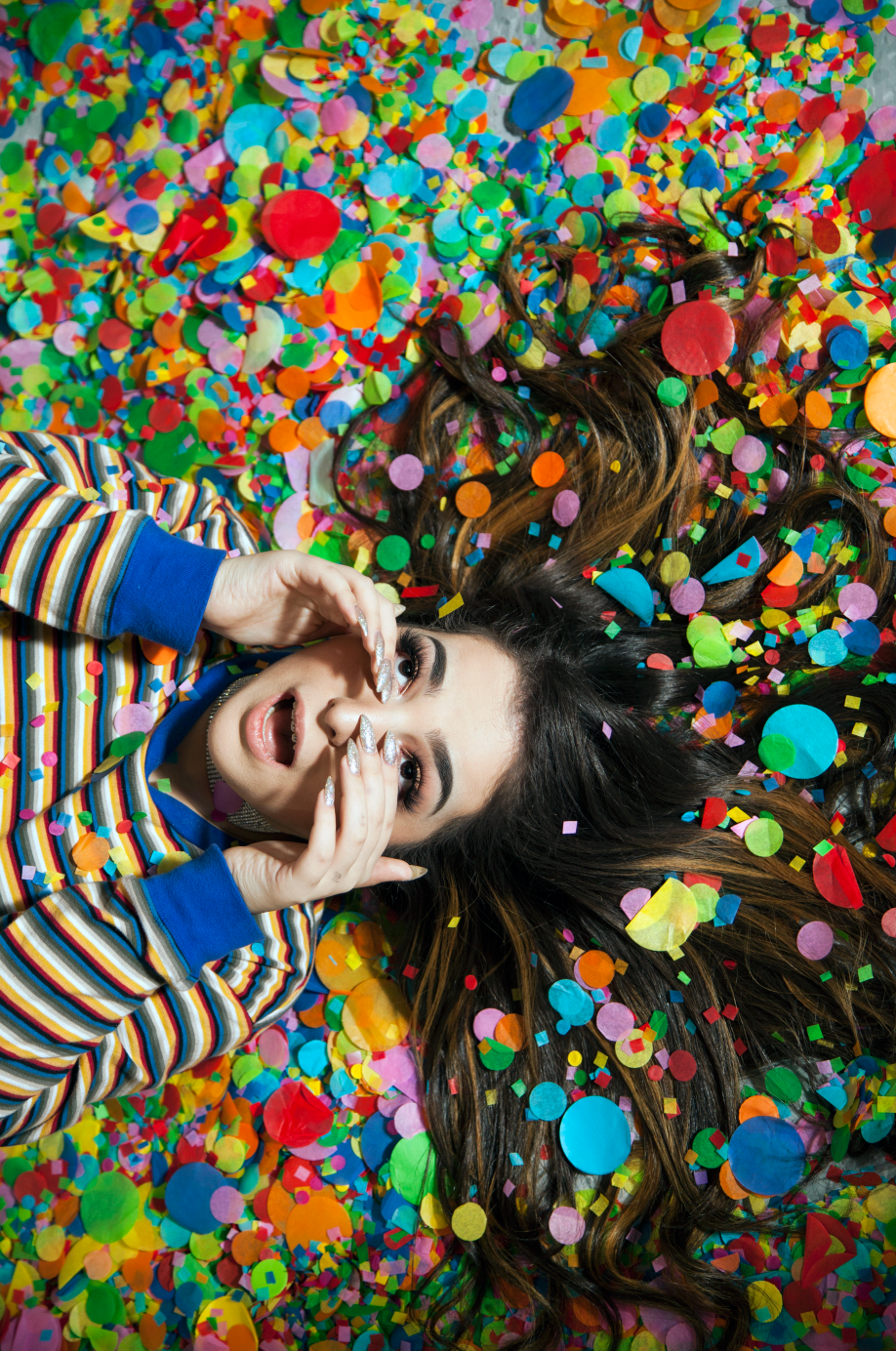
The Confetti Project is a photography series profiling amazing humans and exploring one fundamental but rarely asked question: “What do you celebrate?”. It sounds like an abstract concept, but the end results are tangibly and undeniably beautiful. Throughout the project’s three-year trajectory, Jelena has profiled hundreds of people across New York, LA, Bali, and Dubai.
On an unseasonably warm mid-February day just after her 28th birthday, I met with Jelena at the West Village ByChloe for a long overdue in-depth conversation about her life and work.
Passion over practicality
Children of Eastern European immigrants building a life in New Jersey, Jelena and her two younger sisters were taught to always put education first. Her father an engineer and her mother a doctor, Jelena naturally held the assumption that she would follow in her parents’ footsteps.
“I believed that I was going to be a doctor because my mom was,” she says, thinking back. She attended the University of Vermont as a pre-med student, but immediately became far more entrenched in the social aspects of college life than the academic. “I was learning how to live life. College was that time when I realized my home environment was not the world at large.”
At a certain point, she had to face the fact that her interest in pursuing a medical degree had waned. “I was afraid of admitting it to myself, more than anything. My parents weren’t that fazed by it. For the first time, I wasn’t excelling academically, and I had compartmentalized my life. School was in one box and social life was in another. So I vowed never to do anything I wasn’t passionate about,” she recalls. “Because it was such a waste of time. I was suffering on the inside. And since then, I’ve become more hedonistic. When I’m deciding whether to do something, I always ask myself, is this worth it?”
As Jelena came to terms with these epiphanies, an opportunity to design layouts for the university newspaper arose. She was exposed to design tools she didn’t know existed, and her creative spark ignited. She began diving into any design work she could find.
“I would stay up until 3 in the morning doing something like feng shui-ing my room, or creating infographics for fun. My mind always categorized things in creative ways,” she says. “But I originally had no idea what graphic design even was. So when I learned about it, I was like oh my god, this is exactly how my mind works.”
By the time she started to embrace this, her time as an undergrad was coming to a close. But with clear eyes, Jelena moved back home to New Jersey and enrolled in a graphic design certificate program at Parsons in New York.
“I just took a chance. The program had a mix of people switching career paths, self-taught designers, people across races and ages. For me, those days were the seeds of being artistic and entrepreneurial,” she said.
Graphic design degree in hand, Jelena eagerly started her first job at then-startup Thinx (as their first hire). She moved to Williamsburg, where she shared an apartment with five others — a classic NYC experience. But after 8 months of working full time, Jelena started to burn out and her optimism faltered. Remembering her commitment to follow her passions, she quit — “I realized, if I’m going to sacrifice myself for anything, it’s going to be something that I made.”
Those entrepreneurial seedlings thus sprouted.
Finishing what she started

The impetus for Jelena to commit to a creative project stemmed from a healthy combination of critical self-reflection and well timed run ins with confetti. At a concert, Jelena grabbed a bunch of confetti that had been thrown around and stuffed it into her jacket pockets. Upon rediscovering it on a bad day weeks
later, she felt viscerally uplifted and knew there was something there. Living in Brooklyn, she found herself rubbing elbows with creatives, and made it a point to ask people about what motivated them to keep pursuing their dreams. The idea to profile inspirational people in a compelling and colorful way began with those conversations.
“For most of my life, I would brainstorm but not execute. I have so many journals that are half-finished. I was a typical creative thinker — a dreamer, my head in the clouds.,” Jelena says. “So shortly after I left my job, I said why don’t I give myself a challenge? I’ve never finished anything. I don’t know how it feels.”
Her self-directed challenge was to spend three months photographing 50 people with confetti and asking them what they celebrate, culminating in an eye-popping coffee table book. “I told myself I would try and do everything that I’d previously thought I’d need 15 years of experience to do,” she says. “And I naively thought that those three months would end with a bestseller.”
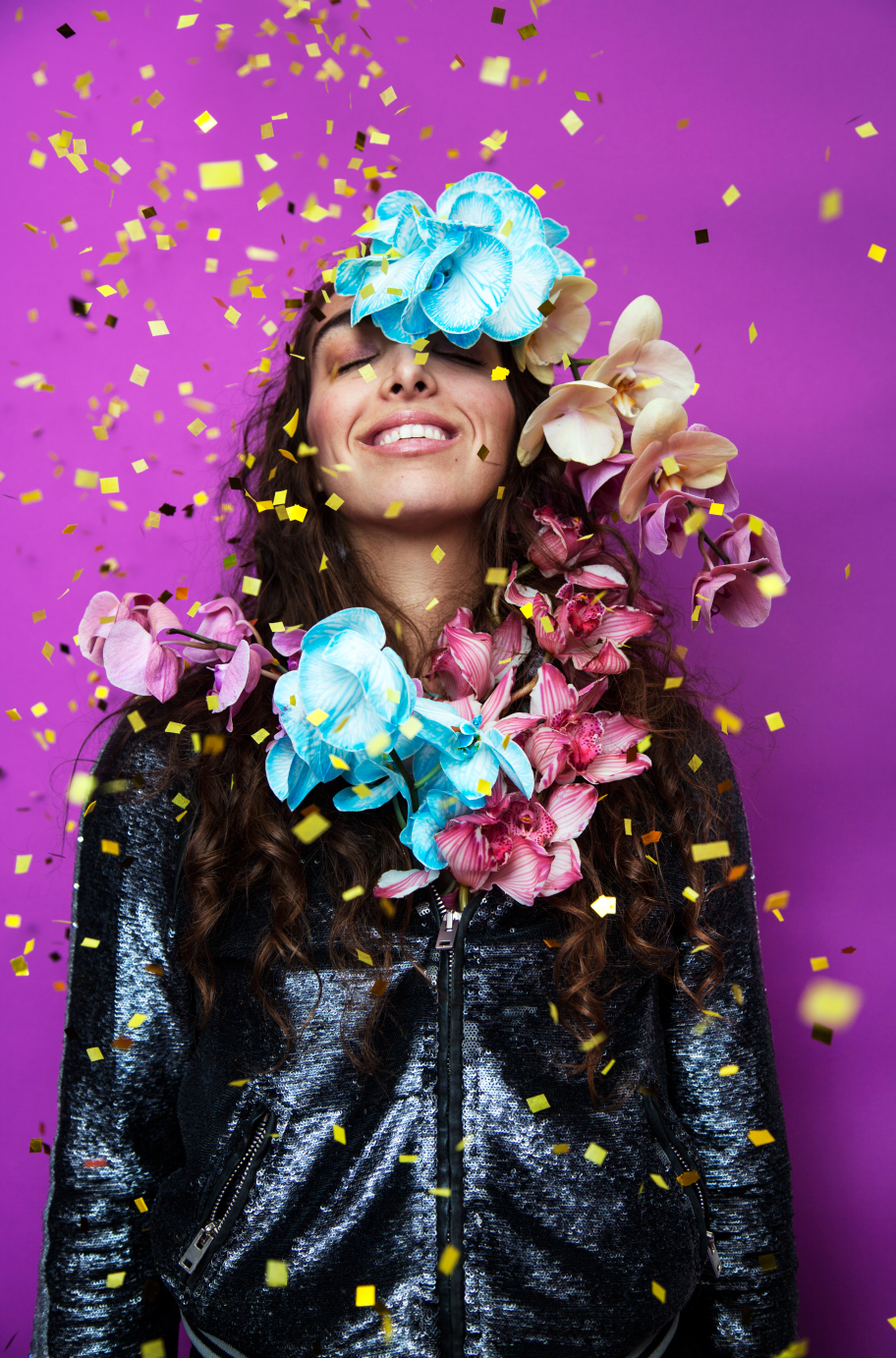
Jelena completed her challenge and made the coffee table book, only to face rejection by a literary agent. “The agent did give me really good advice, which was to just keep going,” Jelena says. “That’s when I went on this mission of profiling as many people as possible, all around the world. So I photographed 100 people in one year in my apartment.”
The nitty gritty
That first year, Jelena focused on taking the project from a three month experiment to an ongoing project and the beginnings of a business. It was a year of discovery, but was also packed with fear and new challenges.
“It was isolating, but it felt like I was making the manual for something. I had loose infrastructures and parameters, but I was honing in on what the process would be like. So each person who came in influenced that,” she says. “And it got to a point where people were referring friends of friends, and I was meeting strangers for the first time. People I’d never met before would open up and tell me things about their lives. It was amazing to go deep right away — really skipping the small talk.”
Staying focused on her goals for the project was necessary, but occasionally she paused to reflect on how far she’d come over the course of the year.
“I’m very future-oriented and constantly trying to move forward amidst that paradox of fear and excitement that plagues every single day. But then these windows open up where I’m like whoa, look what I’ve done. It sinks in and I’m like, who is this badass? And then the window closes. But this was the beginning of me finding my purpose and skills.”
Finding joy amidst grief
As Jelena rode along creative whirlwind that was the first year of The Confetti Project, she saw how much power the project could have as a tool for self-reflection and emotional connection. A particularly moving experience with a roommate in her Williamsburg apartment solidified this observation.
“My roommate’s name was Thea Steen. She was a Norwegian journalist and worked on a different time zone and kept to herself, so I didn’t get to know her well at first. But eventually she heard about the project and wanted to participate,” Jelena recalls. “We had a two hour window of time for the photo shoot. She wrote a beautiful passage about what she celebrated, and it was all about liberation, resilience, strength, and prose about her time in New York. It was so inspiring.”
Shortly afterward, she received an email from Thea informing her that she’d been diagnosed with cervical cancer and had to go back to Norway for treatment. As a parting gift, Jelena gave her a set of edited photos.
Over the next year, Thea became an outspoken activist documenting her experiences with cancer. At the same time, Jelena learned that her own father had been diagnosed with terminal lung cancer. Jelena calls it the year of “cancer and confetti,” when she searched for celebration while taking care of
her father during his treatment and keeping tabs on Thea throughout hers.
After a yearlong battle, Jelena’s father, her best friend, passed away. Not long afterward, Thea passed away at the age of 26. “Thea’s family announced what had happened. It was wild because I went back into her photos and I was able to give them to her family and friends with the words she’d written,” Jelena says. “It was so powerful as a remembrance of someone, a relic of what they embodied. It
was her, present in the moment, talking about what she loved about life.”
If she had to pick one pivotal moment when all of the dots connected, Jelena says this was it. “I knew then that this was why I would keep going. Because we’re all going to lose someone. Having lost my dad, I knew how important it was to cherish the moments. Because all we have are moments,” she explains. “So my main mission became to create a capsule collection of humanity at this moment in
time. A snippet of humanity that people generations to come can look back at.”
Gaining clarity
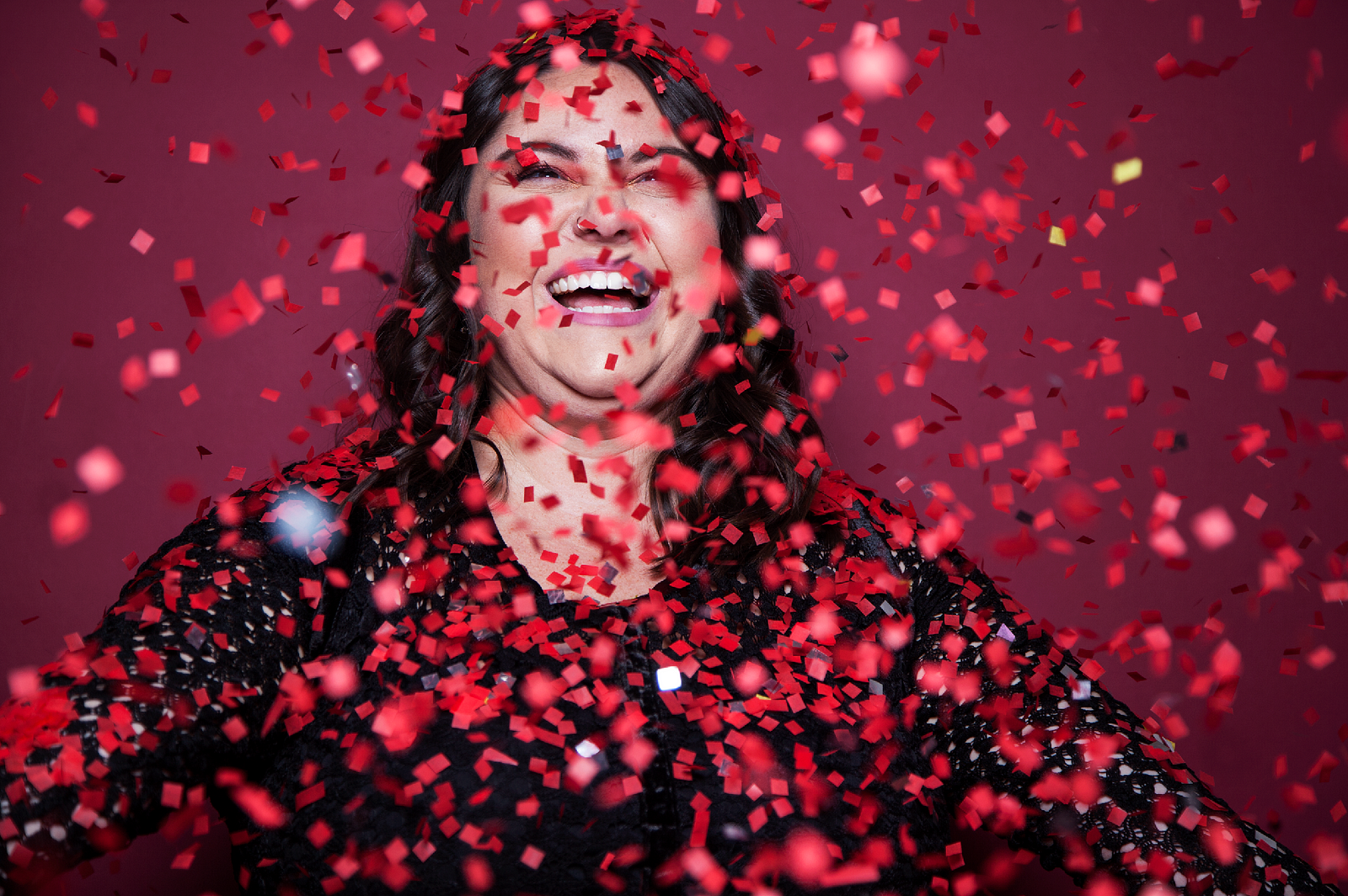
While facing immense grief, Jelena had reached a vital point in The Confetti Project’s evolution — she had attained a clear and unwavering sense of purpose. She also thought through the look and feel, knowing how tricky it would be to pair the “instagrammability” and aesthetic of her work with emotional depth. As artistic inspiration, Jelena references Andy Warhol’s use of pop culture iconography and Brandon Stanton of Humans of New York’s combination of narrative and photography.
“Before any photos are taken, I always make it a point to connect with the person. When you bring photos and stories together, you get a heightened dimension of visual storytelling. And I’ve seen it in the photos. When I ask a question that makes a person get introspective, they start to relax. And that’s what differentiates the confetti photos that I make from others that are out there or that have been done in the past.”
While the focus remained on the topic of celebration, she started to explore different parts of the human psyche, including fear, love, and purpose. “It started to be about exploring those three things — what do you love about yourself, what are you afraid of, what’s your purpose — ultimately culminating in celebration,” she explains. “It’s not always rainbows and unicorns, it’s not just about being shareable and ‘aesthetic’ and for Instagram. I want each individual to walk away with an altered perception of reality. Someone came in once feeling very angry, and they were throwing confetti at me and you could
just see how cathartic it was. Someone else just immediately cried and began unburdening themselves of their grief and struggles. So it hits people individually as soon as they start throwing confetti. And with my questions and conversations, they are primed to think deeper.”
Through this focus on individualized introspection, Jelena got even better at working with subjects and solidified her approach. She also found that her personal story played a major role in maintaining a certain level of seriousness with The Confetti Project.

“People think confetti is striking, it allures them, but it can also seem superficial. So for me it’s important that people hear my story and about how the project came to be. I lost a parent doing this and it’s changed my life in terms of how I find gratitude. There are people who have been a part of this who are no longer alive,” she emphasizes. “As it scales and evolves, I want to use this platform for activism, for helping others, for speaking and motivating.”
The de-stigmatization of terminal illnesses like cancer is understandably an important issue to her. While Jelena was caring for her father and around the time of his eventual passing, she completed her 100th confetti shoot, culminating in a story she calls “Cancer & Confetti.” She will soon be releasing this memoir-esque chronicle of her experiences during that time, in hopes that her story could inspire others. “I’m meeting so many people who are losing people at young ages. When my dad passed away, I found that I was still able to cultivate this daily celebration. So I feel like I have a responsibility to share that.”
New York as a home base
As things progressed, Jelena knew she needed to turn The Confetti Project into a brand. Up until this point, she had been conducting shoots in her bedroom in her shared Williamsburg apartment. When her dad passed away, she moved back home to New Jersey, and realized her next step needed to be finding a studio space. She experimented with a few different Brooklyn-based spaces, each with varying pros
and cons, and landed on one in Bushwick, where she works today.
“Part of why I’m in Bushwick is because I love Brooklyn so much. It’s filled with so many diverse people. I had a moment recently when I realized how colorful my commute is, and how it’s not like that everywhere in the city. So it was just a matter of finding the perfect white room to take photos in.”
Jelena continues to live in New Jersey, but her connection to the city is strong.
“I think the most magical times in New York are when you’re just kind of going through the rhythm of the day and you cross paths with strangers or friends or people. Those are the love moments, those serendipitous crossings,” she comments, and I enthusiastically agree.
On a typical day, Jelena takes the bus over to Port Authority and spends some time in Manhattan, walking, buying books at Strand, and grabbing tea before heading to the studio.
“The best days for me are when I have a slew of scheduled things mixed in with spontaneity,” she says. “I love walking and commuting. I meet so many people, and I love just smiling and acknowledging them. I get energy from those interactions every time. If I’m feeling off one day, I’ll go out and exchange
one smile and will instantly feel transformed.”
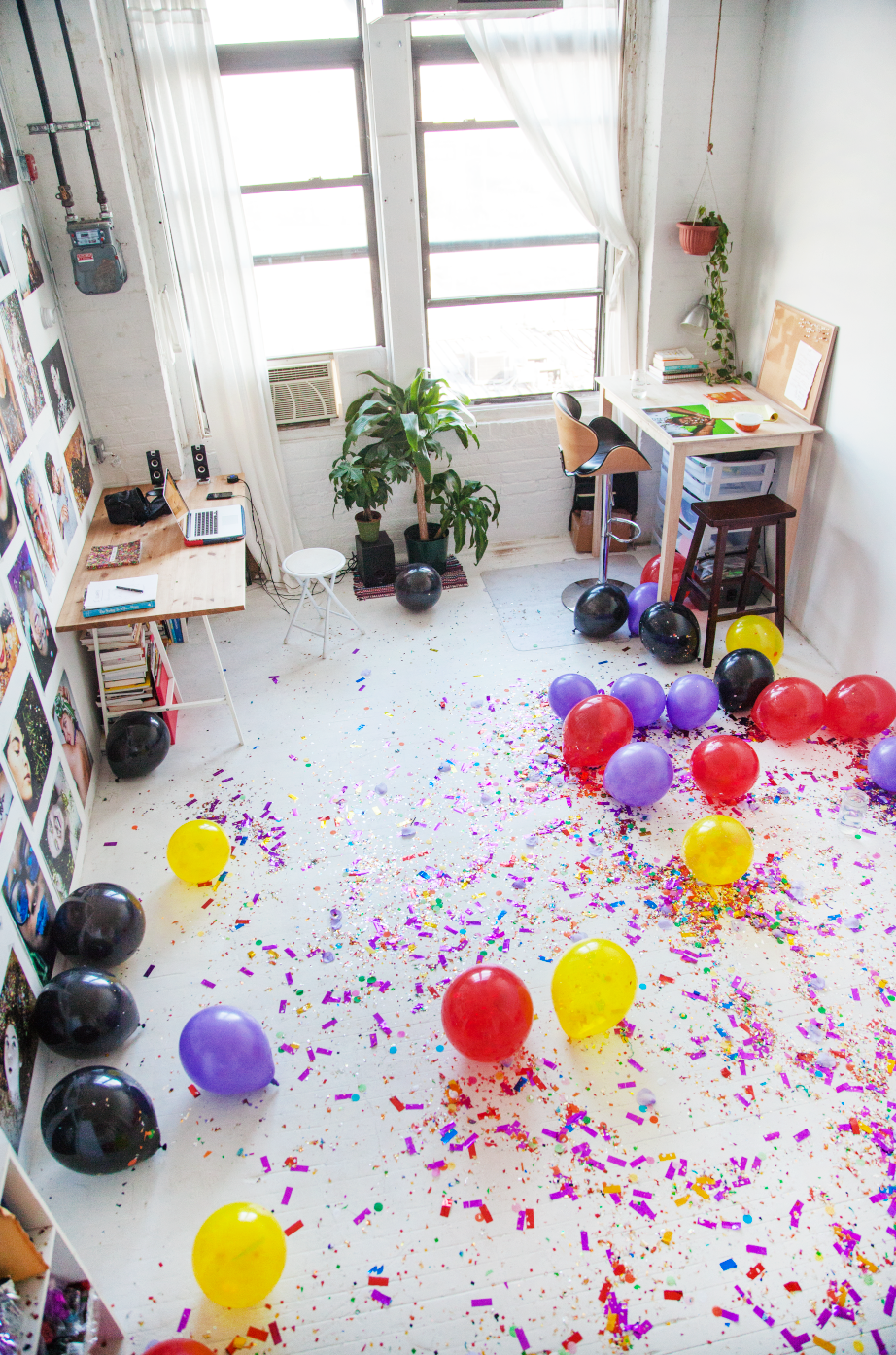
Once she gets to the studio, she goes through a ritualized routine including burning sage, putting on a lavender scented diffuser, tidying up leftover confetti, setting up lights, working on concepts. With these preparations complete, the space is ready to welcome her next guest.
Building and harnessing momentum
Just three years into the project, Jelena is already starting to be approached by other photographers who want to emulate her work, asking her for guidance on how to get started themselves. “It’s already bigger than me, but I’m powerwalking with it, side by side,” she laughs.
Jelena has already executed pop-ups and partnerships of varying scales in multiple cities all over the world. Just this January, she debuted The Confetti Project in Dubai, in partnership with Sauce, the Dubai Shopping Festival, and the Department of Tourism and Commerce Marketing.
Of the experience, she says “Dubai was amazing. The basic theme was this understanding that we all celebrate the same things. Thinking about the Middle East, even though Dubai is a progressive city, I wasn’t sure what to expect. I was asking women of different degrees of religiousness and conservatism what they celebrate. And I heard the same things people say here. It was eye-opening to realize that The Confetti Project affects different types of people in the same ways, meaning that celebration is universal. And all of us celebrate every day we’re alive.”
 Image alt](https://cdn-images-1.medium.com/max/1600/1*ELh2k5qJImTtzz7dKv0Ofw.jpeg)
As she moves forward, Jelena’s goal is to continue to establish The Confetti Project as a moving pop-up, producing large-scale global events seasonally. To launch this undertaking, she is planning her largest and most commercial endeavor yet this summer in NYC: a large-scale, interactive pop-up experience
for the masses. Though she’s not sure what to expect of the outcome, her excitement about it is contagious.
Another goal of The Confetti Project is to incorporate a strong social impact component. “Every human being deserves celebration,” she says. Though she’s still working out how nonprofit collaborations will look, she knows she wants to work with marginalized communities. Ultimately, she hopes that half of the work she does will be dedicated to social awareness campaigns and fundraising efforts for charitable organizations.
What Jelena celebrates
Before I let Jelena go off to her next commitment, I turned her question around on her, asking what she celebrates right now. Her response:
“It’s weird when people direct the question back at me! It changes, but there are two consistent things that I celebrate. First is my dad — everything I do is in honor of him. Seeing someone I love being sick for a year, I’m constantly existentially thinking about this vessel I’ve been given, and the body and the mind. And how health is easy to take for granted when you’re a young, able-bodied person. So health is the second thing that’s always at the forefront. That’s how I recalibrate my perspective if I feel like I’m getting too down the hole of something trivial that’s happening day-to-day,” she begins.
“But right now, I celebrate knowledge. I feel like I’m becoming a student again in terms of my curiosity and thirst. I recently decided to read a book a week, which felt daunting at first but now I’m reading 100 pages a day, seamlessly,” she says, and goes on to tell me about her most recent favorite read, Lilac Girls by Martha Hall Kelly. “Whether it’s learning from experience or from a book, right now I’m celebrating being a sponge.”
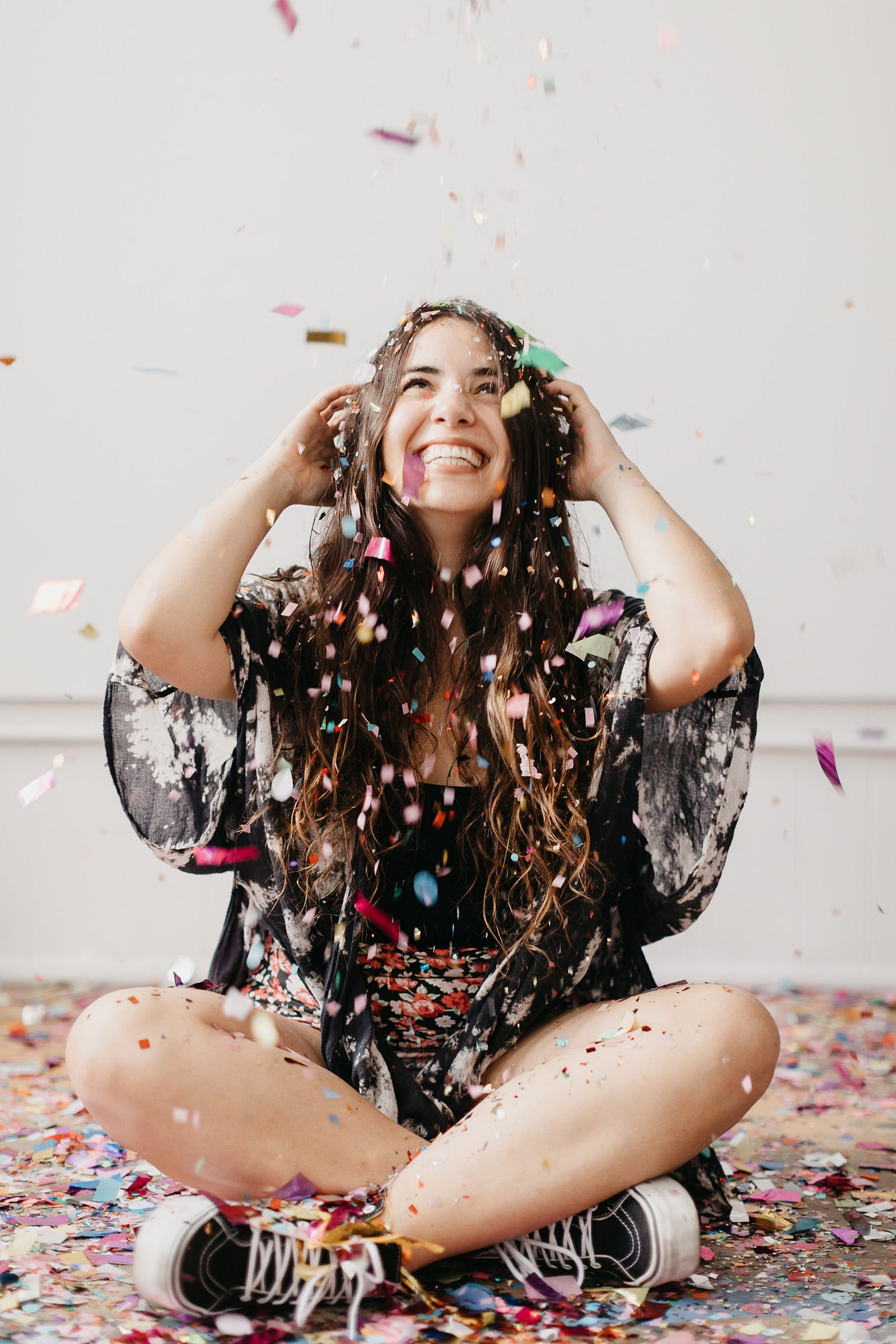
Let us know what you think of Nooklyn Stories and share your thoughts with us by posting on our Facebook page or tweeting us @nooklyn!
Photo Credits: 1) Superr + Liron Erel 2-7) Jelena Aleksich 8) Sauce 9) Superr + Liron Erel